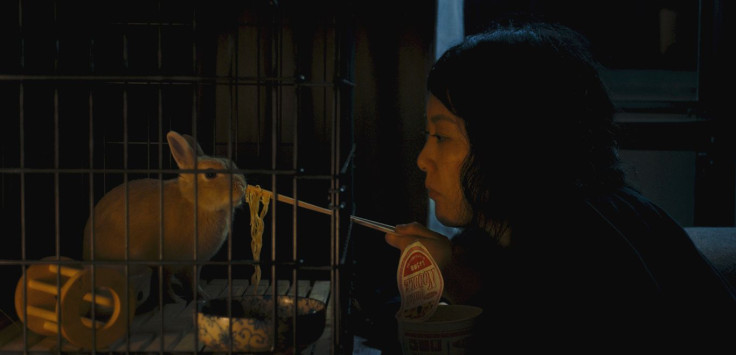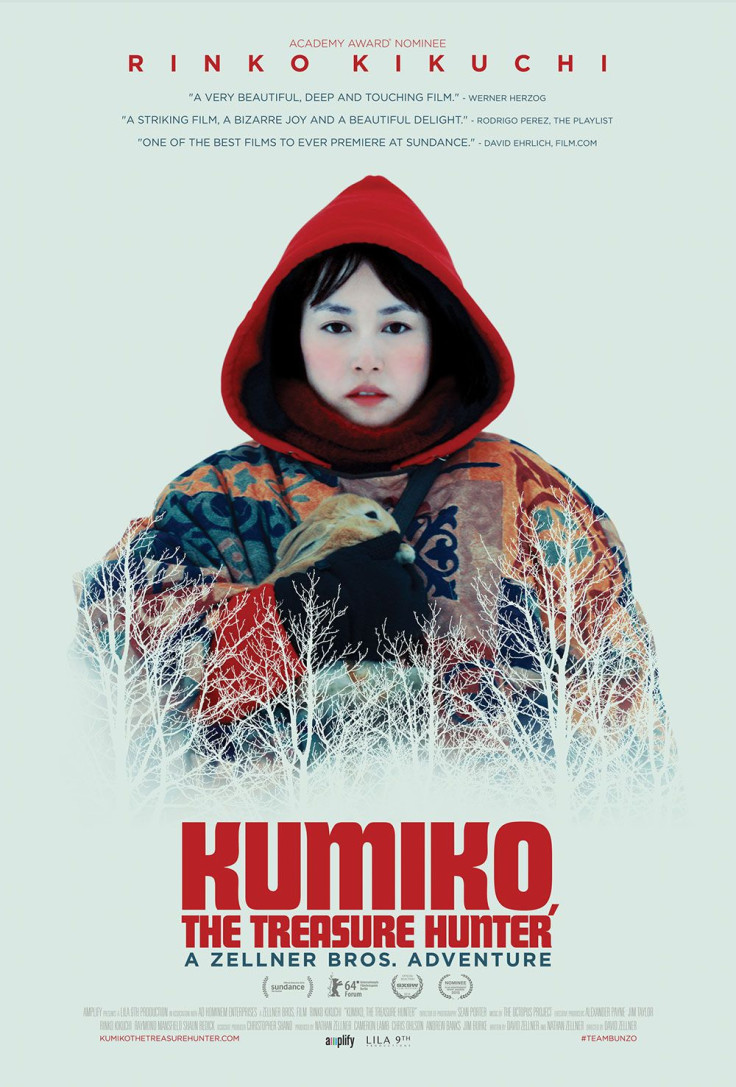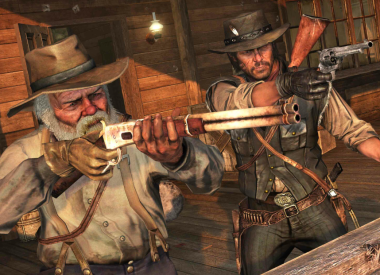Kumiko, The Treasure Hunter opens on a lonely coastline, where Kumiko (Rinko Kikuchi) discovers a water-logged VHS copy of Fargo. Kumiko probably buried it there herself. When she finds the VHS Kumiko is already distant and adrift, but Fargo’s buried satchel of money becomes the center of her decaying orbit in the distinctive and satisfying Kumiko, The Treasure Hunter.
Like any quest movie, Kumiko, The Treasure Hunter has a far-flung, magical object to pursue. But Kumiko can accept no party members and goes up against mundane reality—the biggest possible obstacle—alone. Hearing the premise of Kumiko, The Treasure Hunter suggests a number of other movies with characters journeying through whimsical creations of their own minds. But Kumiko, The Treasure Hunter is not a Michel Gondry movie. For much of Kumiko, The Treasure Hunter the audience can only observe the symptoms of her fantasy. We watch as Kumiko pursues a fruitless treasure hunt with specifics we cannot understand.
Kumiko, The Treasure Hunter Movie Trailer
That does not mean Kumiko is distant from us. Here then is the enduring theme of Kumiko, The Treasure Hunter. We may each be separate, with an interior life unlike any other, but that does not mean we are alone. Whether a lonely widow or a well-intentioned sheriff’s deputy, no one Kumiko meets understands what she is going through, but so many of them reach across the gulf anyway.

Because Kumiko, The Treasure Hunter keeps so focused on an honest appraisal of wayward but relatable human desires, it feels like a digression to speak of its merits as a film. But it’s precisely Kumiko, The Treasure Hunter’s technical and artistic virtues that creates a movie where discussing themes and characters becomes preferential. So it’s worth noting that Rinko Kikuchi is fantastic, many of the characters have the wry almost-reality of an Alexander Payne film, and Kumiko, The Treasure Hunter is a visual treasure whether it’s showing us the decay of Kumiko’s Tokyo apartment or the windswept austerity of Minnesota.

There are moments of human joy in Kumiko, The Treasure Hunter. There is also despair. During Kumiko it is possible to find yourself laughing through tears. Sometimes Kumiko, The Treasure Hunter captures on camera that special kind of interior flashbulb that lights us up with an all-too brief clarity.
Strip away any ambition and you have a treasure hunt. We are often conditioned to be secretive about our real dreams. We are cautioned, by ourselves more often than not, to be realistic. For many of us our true goals become so hidden, so buried inside us, that we struggle to remember what they are. But Kumiko, The Treasure Hunter is a movie that makes you want to be honest with yourself. Not because Kumiko’s treasure hunt is portrayed as a path to satisfaction, but because the desperation that leads to her disconnection comes from a place that feels all too familiar.

Kumiko is out of sync with the world in Kumiko, The Treasure Hunter. The barrier between her and other people is so sturdy and so opaque that even the unrelenting scrutiny of the movie audience cannot uncover why Kumiko chooses the treasure she chooses. Even though her treasure hunt emerges from pain and secretly desires death, we can’t help but envy her doggedness. And while Kumiko is unable to find solace in the human kindness extended her, Kumiko, The Treasure Hunter suggests that maybe we can open our hearts, just a little, in our own treasure hunts.


















